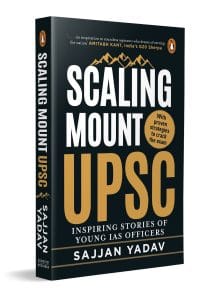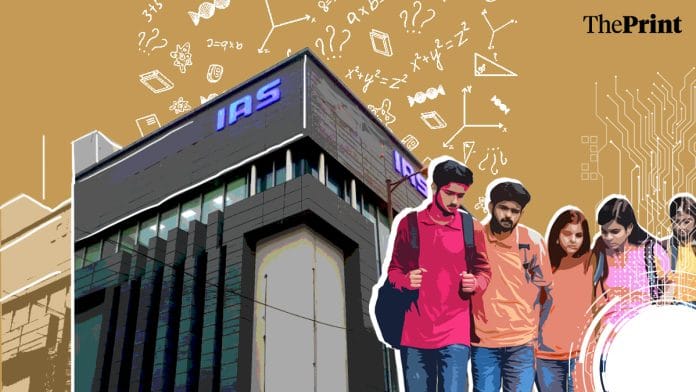At the exam centre, Waseem’s familiar face, known from the coverage in the local media after his selection, attracted attention. To shield himself from distractions, he donned a mask and immersed himself in his exam. However, Waseem’s overconfidence led to a lapse in concentration. He approached the exam casually, hastily selecting options without giving them due consideration. When the answer keys were released, Waseem was filled with regret and frustration, realizing the gravity of his errors. Despite his disappointment, he clung to a glimmer of hope that he might still clear the Prelims. Yet, that hope was dashed when the results were announced—he had failed to clear the Prelims by a mere two marks.
The news shocked his family even more than it did Waseem himself. They couldn’t fathom how he could fail when he had successfully navigated all three stages in his previous attempt. The unpredictability and challenges of the exam left them bewildered. Reflecting on his failure, Waseem recognized the harsh truth—he had been too overconfident and careless. It was a hard lesson learned. He realized that success in this rigorous exam couldn’t be taken for granted and that outdated preparations were insufficient to crack it.
After enduring a period of despondency, Waseem found renewal within himself, viewing his failure as an opportunity to lay a solid base. With the next Prelims just six months away, he resolved to embark on rigorous preparations immediately for both the Prelims and the Mains and secure a top rank in the CSE-2022. Waseem was soon in HSC, preparing his strategy to conquer Mount UPSC. By then, the marks sheet of CSE2020 had been published. Waseem carefully analysed his weaknesses and potential areas of improvement. He found that he had performed well in essays and Interview, but there were shortcomings in GS.
There was some scope for improvement in the optional subject, too. Shubham Kumar, the topper of CSE-2020, became an inspiration for Waseem. He watched Shubham’s videos, where he emphasized studying from model answers to previous years’ questions. Motivated by this, Waseem visited Karol Bagh and purchased a set of model answers from a renowned coaching centre. He also enrolled in a test series to further refine his answer-writing skills.
Thereafter, Waseem curated a comprehensive timetable from November 2021 to March 2022 for the Mains and from April 2022 to June 2022 for the Prelims preparation. He wrote many mock tests both for GS Mains and anthropology and saw his scores and confidence rising. He also wrote twenty mock tests for Prelims, simulating exam-like conditions. Waseem’s perseverance paid off as he cleared the Prelims, marking the beginning of his intensive Mains preparation. It revolved around studying model answers, doing test series and multiple revisions.
Waseem would start his day by writing answers to previous years’ questions for an hour and doing self-evaluation. He allocated time for each question—seven-and-ahalf minutes for ten markers and ten minutes for fifteen markers, ensuring he stayed within the allotted time limits. Even on the day of Mains papers, he would wake up early and write answers of three or four questions, so as to get the flow of writing. As expected, Waseem cleared the Mains exam. The Interview Odyssey In his first Interview back in 2021, Waseem had brimmed with confidence, armed with six months of arduous preparation to face the daunting board. Little did he know that a tumultuous rollercoaster awaited him and that the very first question would shatter his overconfidence. ‘The coaching centres for this exam are mushrooming. Aren’t they against equity and equal opportunity for candidates?’ The chairperson’s inquiry pierced through the air as the interview commenced. Expecting questions on Kashmir or topics related to his DAF, Waseem was caught off guard.
Waseem took a moment to compose himself before responding. ‘Ma’am, in today’s world, knowledge has become more accessible. There’s an abundance of free resources available online for candidates, who cannot afford coaching. Additionally, many governments offer free coaching to underprivileged students. For instance, in Kashmir, we have the ‘Parwaaz’ scheme. While coaching provides guidance, success can also be achieved through self-study, utilizing online resources effectively,’ he answered, hoping to steer the conversation towards Kashmir and invite questions on the topic. Yet, the relentless barrage of questions surrounding coaching for the next ten minutes left him feeling drained and disheartened.
A sigh of relief escaped him when the conversation shifted to the security situation in Kashmir and other parts of India, including incidents of stone pelting on security forces. Prepared and armed with data, Waseem tackled the topic with confidence. Then, out of the blue, came a question that caught him off guard. ‘What do you think makes a good teacher?’ a member of the board inquired. ‘A good teacher is not merely someone who imparts knowledge, but the one who empowers students to become self-motivated learners,’ Waseem replied without hesitation Exiting the Interview room, Waseem carried with him a mix of emotions—doubt mingled with determination, uncertainty intertwined with hope. However, when the marks were revealed, he was left astounded by the unexpectedly high score of 184.
 This excerpt from Sajjan Yadav’s ‘Scaling Mount UPSC: Inspiring Stories of Young IAS Officers’, has been published with permission from Penguin Random House India.
This excerpt from Sajjan Yadav’s ‘Scaling Mount UPSC: Inspiring Stories of Young IAS Officers’, has been published with permission from Penguin Random House India.






